
The year 2025 has cast a long shadow over the world of music, marking the undeniable end of an era as several monumental figures, many of them hovering around the venerable age of 75, have departed from our sonic landscape. These aren’t just names on a list; they are the architects, the agitators, and the very heartbeat of movements that redefined sound, culture, and the spirit of rock and roll. Their passing is not merely a moment of sorrow but a profound opportunity to reflect on the seismic impact they had on generations of listeners and countless aspiring artists.
From the primal scream of proto-punk to the earth-shattering riffs of heavy metal, and the soulful depths of electric blues, these individuals left an indelible mark, shaping the very fabric of what we understand as modern music. Rolling Stone has always championed those who dared to push boundaries, to innovate, and to live their art with an uncompromising vision. It is with that same spirit of reverence and critical insight that we delve into the lives and legacies of these legends, whose final curtain calls in 2025 resonate with the echoes of their unforgettable sonic revolutions.
Join us as we embark on a journey through the careers of some of the most influential musicians and unsung heroes who defined their respective genres. Their stories are interwoven with the tapestry of rock’s evolution, reminding us that while the physical presence may be gone, the music, the influence, and the sheer audacity of their artistry will continue to inspire and provoke for decades to come. Their legacies are monumental, their impact immeasurable, and their absence deeply felt.
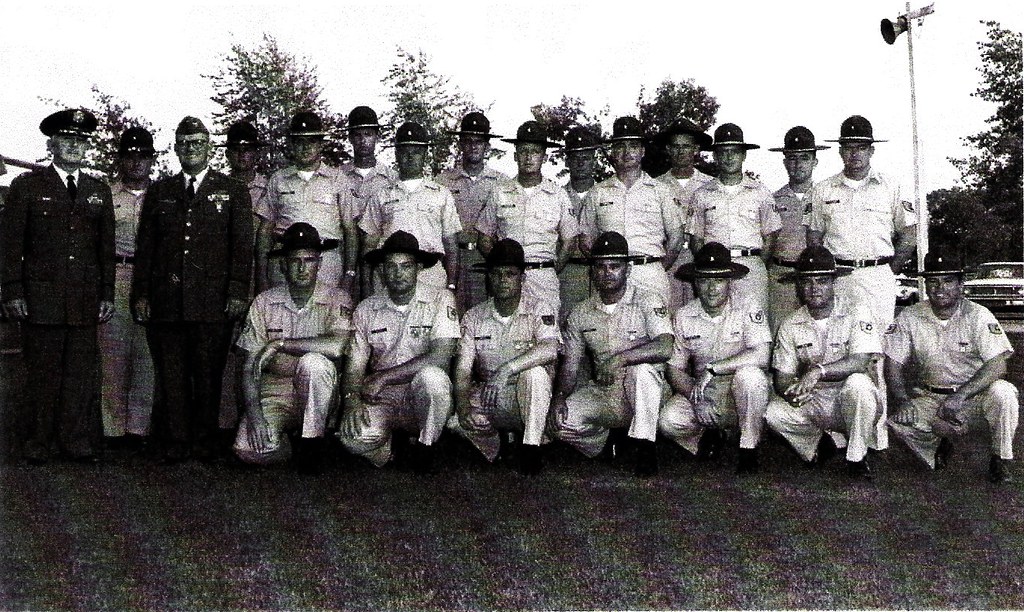
1. **Dennis Thompson (MC5)**When Dennis Thompson, the last surviving member of the legendary proto-punk outfit MC5, passed away at 75 in 2025, it was more than just the loss of a musician; it was the silencing of the final voice from a band that embodied rebellion and raw sonic energy. Born in Detroit, Michigan on September 7, 1948, Thompson became the rhythmic powerhouse for MC5 in 1965, joining a lineup that included the incendiary talents of singer Rob Tyner, guitarists Wayne Kramer and Fred “Sonic” Smith, and bassist Michael Davis. His passing followed those of his bandmates, with Tyner and Smith in the ‘90s, Davis in 2012, and Kramer earlier this year, completing the poignant end of an influential collective.
Thompson’s journey into music began early, as he “caught ‘the bug for playing music'” when he was just 13 years old. Despite his parents’ initial disappointment that he prioritized the band over school, they ultimately supported his passion. He recounted this pivotal moment in a 2018 post on his site, musing on the unexpected path his life would take. It’s a testament to his innate drive and the compelling pull of rock and roll that he followed his instincts, leading him to a destiny that would forever alter the course of music history.
His distinctive and ferocious drumming earned him the fitting nickname “Machine Gun” Thompson. This wasn’t just a catchy moniker; it was a descriptor of his aggressive, unrelenting style, which was absolutely “essential to MC5′s distinct sound.” The band’s raw, untamed energy and political fervor were perfectly channeled through Thompson’s percussive assault, transforming them into what he himself described as a “high performance search and destroy team.” Their music was not just played; it was unleashed, a furious statement against the status quo that laid foundational stones for punk rock and heavy metal.
Thompson’s explosive talent can be heard on MC5’s seminal 1969 LP, “Kick Out the Jams,” a live album that captured their raw power, as well as their two studio albums released in the ‘70s. His enduring commitment to the band’s legacy even extended to contributing to two tracks on their final, yet-to-be-released album, “Heavy Lifting.” Just last month, MC5 received a long-overdue honor, being announced as inductees for the 2024 Rock & Roll Hall of Fame. Thompson’s reported reaction to the news while recovering in the hospital—”It’s about f—— time!”—perfectly encapsulates the band’s defiant spirit and his own lifelong dedication to their revolutionary sound.

2. **David Johansen (The New York Dolls)**The rock and roll world mourned the passing of David Johansen, the iconic and influential vocalist of The New York Dolls, who died at 75 in February 2025. Johansen was a true chameleon, a flamboyant frontman who fronted one of the most significant proto-punk bands of all time, and then seamlessly reinvented himself multiple times over his illustrious career. His charisma, distinctive vocal delivery, and undeniable stage presence made him an unforgettable figure, leaving an indelible mark on music and performance art.
As the lead singer of The New York Dolls, Johansen was at the forefront of a movement that shattered norms and paved the way for punk and glam rock. The Dolls were more than just a band; they were a cultural phenomenon, challenging gender stereotypes with their audacious fashion and raw, unapologetic sound. Their influence rippled through countless bands, inspiring a generation to embrace authenticity, theatricality, and a healthy disregard for convention. Johansen’s performance was the beating heart of their provocative artistry.
Beyond his groundbreaking work with The New York Dolls, Johansen showcased his remarkable versatility by spinning off a highly successful second career as Buster Poindexter. This alter ego allowed him to explore different musical styles, delving into jump blues, jazz, and cabaret with equal parts wit and panache. Poindexter’s sophisticated yet playful persona was a stark contrast to the Dolls’ raw energy, demonstrating Johansen’s profound range as an entertainer and his ability to captivate diverse audiences with entirely different artistic expressions.
His artistic endeavors didn’t stop there. Later in his career, Johansen also made his way to the big screen as a character actor, proving that his magnetic presence translated effortlessly across mediums. Whether he was belting out anthems with The New York Dolls, crooning as Buster Poindexter, or inhabiting a role on film, David Johansen consistently brought a unique blend of grit, glamour, and genuine artistry. His legacy is one of fearless reinvention and an enduring impact on the landscape of rock, stage, and screen.

3. **Joe Louis Walker (Electric Blues Guitarist, Singer-Songwriter, and Record Producer)**The blues community and beyond felt a deep loss with the passing of Joe Louis Walker, the esteemed electric blues guitarist, singer-songwriter, and record producer, who died at 75 on April 30, 2025. Walker was a pivotal figure in modern blues, known for his masterful guitar work, soulful vocals, and prolific songwriting. His career was a testament to the enduring power and evolution of the blues, a genre he both honored and propelled forward with his contemporary interpretations.
Walker’s music was rooted in the rich traditions of blues, yet he possessed an innate ability to infuse it with fresh energy and diverse influences, making it accessible and exciting for new generations of listeners. His extensive discography speaks volumes about his tireless dedication and creative output. Each album was a journey, showcasing his dynamic range as a musician—from searing guitar solos that could tear down the house to poignant lyrics delivered with a raw, authentic emotion that resonated deeply with his audience.
As a singer-songwriter, Walker crafted narratives that explored the human condition with honesty and grit. His songs were often a blend of personal experience and universal themes, delivered with an authority that only comes from a life lived fully within the blues tradition. His ability to tell a story through song, coupled with his formidable musicianship, cemented his status as a true artisan of the blues, a craftsman who understood the genre’s past while constantly pushing its future.
His role as a record producer further highlighted his comprehensive understanding of music. Beyond performing, Walker was instrumental in shaping the sound of various recordings, lending his keen ear and seasoned expertise to bring out the best in other artists. Joe Louis Walker’s legacy is that of a passionate torchbearer for the electric blues, a musician who ensured the genre remained vibrant, relevant, and continually evolving, leaving behind a profound catalog that will inspire blues aficionados for years to come.
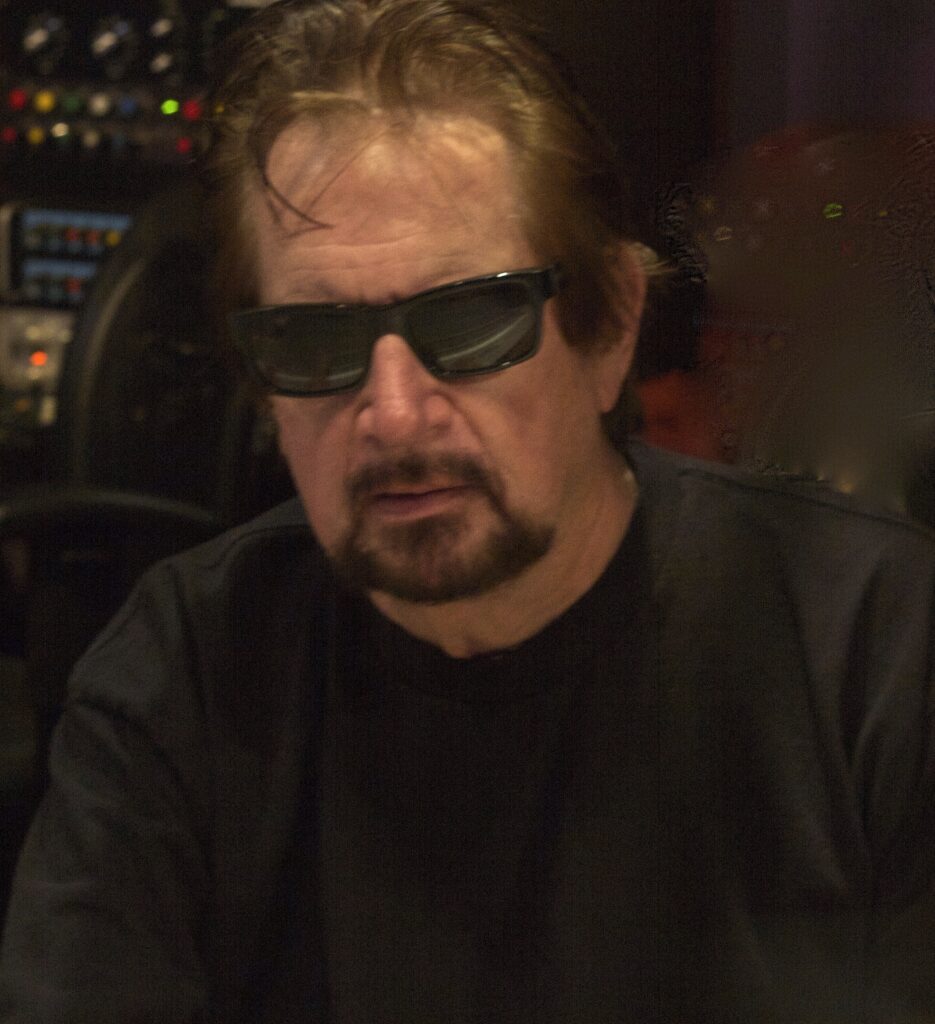
4. **Dave Jerden (Record Producer, Audio Engineer and Mixer)**Behind every iconic album, there are the unsung heroes who meticulously craft its sound, and Dave Jerden was undoubtedly one of these giants. The music world acknowledged the immense contributions of Jerden, a celebrated record producer, audio engineer, and mixer, upon his passing at 75 on February 5, 2025. While not a frontman or instrumentalist in the traditional sense, Jerden’s impact on the “sonic revolution” was profound, shaping the auditory landscapes of countless records that defined rock and alternative music for decades.
Jerden possessed an unparalleled ear for sound, an innate ability to capture an artist’s vision and translate it into a compelling sonic experience. His work went beyond mere technical proficiency; he was an artistic collaborator, often helping bands discover the true potential of their recordings. The depth, clarity, and power he brought to the studio environment transformed raw tracks into polished gems, providing the sonic foundation upon which many legendary careers were built.
In the intricate ecosystem of music production, the roles of producer, engineer, and mixer are distinct yet intertwined, and Jerden mastered all three with exceptional skill. As a producer, he guided artistic direction, nurtured performances, and made critical decisions that influenced the very character of an album. As an engineer, he expertly captured sounds, translating live energy into recorded fidelity. And as a mixer, he balanced and sculpted disparate elements into a cohesive, impactful whole, ensuring every instrument and vocal found its rightful place in the sonic tapestry.
Dave Jerden’s influence permeated some of the most memorable sounds of rock, demonstrating that the genius often lies in the hands that turn the knobs and mold the sound waves. His passing serves as a potent reminder of the crucial, often overlooked, role of these studio alchemists. His work will forever stand as a testament to the artistry of sound engineering and production, a legacy etched not in performance, but in the unforgettable resonance of the records he helped create.
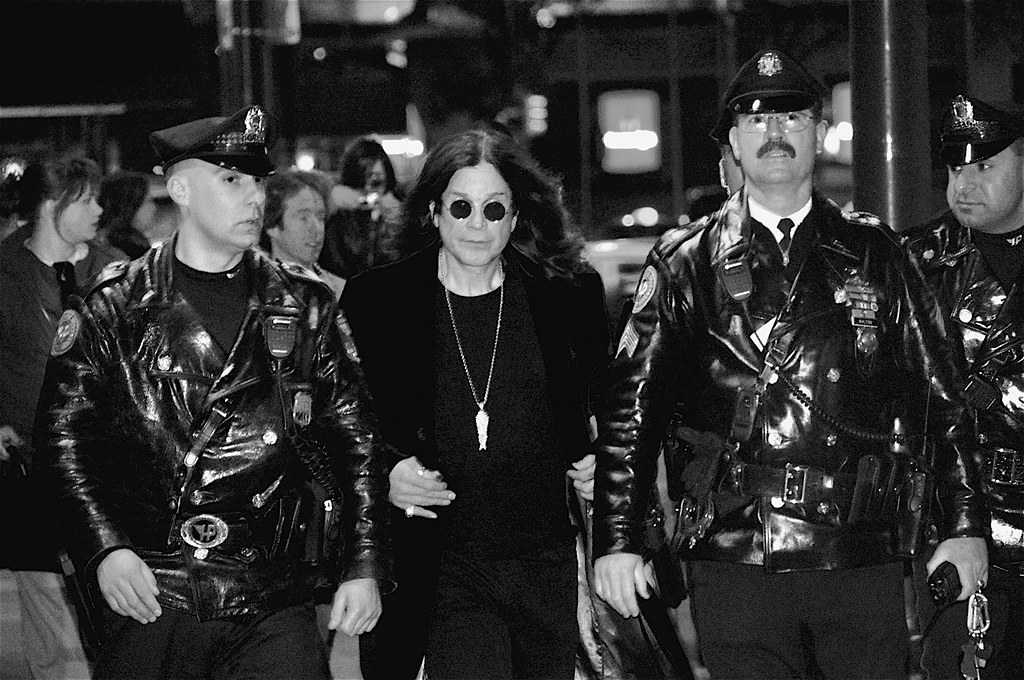
5. **Ozzy Osbourne (Black Sabbath)**In July 2025, the world of heavy metal lost its undisputed godfather when Ozzy Osbourne, the Prince of Darkness and legendary frontman of Black Sabbath, passed away at 76, just 17 days after playing his final show with the band at the momentous Back to the Beginning concert. His death was undoubtedly the “biggest death of the year,” a seismic event that reverberated through the global music community, marking the departure of a true icon whose voice and persona defined an entire genre and inspired millions.
Ozzy Osbourne was more than a singer; he was an entity, a theatrical force of nature whose guttural vocals and wild stage antics cemented Black Sabbath’s place as the pioneers of heavy metal. With Sabbath, he forged a sound that was darker, heavier, and more menacing than anything heard before, providing the blueprint for countless metal bands to follow. Their music wasn’t just loud; it was visceral, exploring themes of darkness, war, and the occult with a raw power that spoke to a generation.
Throughout his career, both with Black Sabbath and as a hugely successful solo artist, Ozzy transcended mere musical performance to become a cultural phenomenon. His distinctive voice, instantly recognizable and often imitated, became synonymous with the genre he helped create. Beyond the music, his larger-than-life personality and often outlandish public image made him an enduring figure in popular culture, a symbol of rock and roll excess and unapologetic rebellion.
His final performance, a mere 17 days before his passing, served as a poignant farewell, a last roar from a legend who gave everything to his art. The tributes poured in from across the globe, a testament to the profound impact he had on fellow musicians and fans alike. Ozzy Osbourne’s legacy is immense, a dark and powerful monument in the annals of music history, ensuring that the heavy metal he helped invent will forever carry the echoes of his unforgettable presence.
Read more about: Birmingham Bids Farewell: Remembering Ozzy Osbourne, The Home of Metal’s Cherished Son

6. **Brian James (The Damned, The Lords of the New Church, London SS)**When Brian James, a seminal figure in the nascent days of punk rock, passed away at 74 on March 6, 2025, the punk community mourned the loss of one of its true architects. As a founding member and primary songwriter for The Damned, James was instrumental in shaping the fierce, urgent sound that defined the British punk explosion. His contributions to bands like The Lords of the New Church and London SS further solidified his status as a relentless innovator and a master of powerful, no-nonsense rock and roll.
James’s work with The Damned was nothing short of revolutionary. Their debut single, “New Rose,” and subsequent album, *Damned Damned Damned*, are often cited as among the very first releases of the British punk movement, beating many of their contemporaries to the punch. His guitar riffs were sharp, aggressive, and economical, perfectly complementing the band’s raw energy and rebellious spirit. He wasn’t just playing music; he was dismantling the excesses of progressive rock and ushering in an era of stripped-down, visceral rock and roll.
Beyond his iconic status in The Damned, James continued to push musical boundaries with subsequent projects. The Lords of the New Church, formed with Stiv Bators, offered a darker, more gothic take on punk, showcasing James’s versatility as a songwriter capable of evolving his sound while retaining his signature edge. His earlier involvement with London SS, though a short-lived project, was a significant precursor, bringing together talents who would go on to define various corners of the punk and new wave scenes.
Brian James embodied the DIY ethos and confrontational attitude of punk rock. His influence extended far beyond the immediate success of his bands, inspiring countless guitarists and songwriters to embrace simplicity, speed, and raw emotion over technical virtuosity. His passing is a somber reminder of the fleeting nature of life, but his musical legacy—a body of work that screams with defiance and unbridled energy—will continue to reverberate through punk rock history, a testament to his enduring impact on the “sonic revolution” he helped ignite.

7. **Garth Hudson (The Band)**Garth Hudson, the venerable multi-instrumentalist and the last living member of the iconic supergroup The Band, left us at 87 on January 21, 2025, in Woodstock, New York. His passing marked the end of an era for a collective celebrated not only for their groundbreaking independent career but also for their pivotal role in backing Bob Dylan during his controversial electric period. Hudson was often lauded as The Band’s “secret weapon,” a title that barely scratches the surface of his profound and esoteric musical contributions.
His mastery spanned across a remarkable array of instruments, including the organ, piano, keyboards, accordion, and saxophone. This instrumental versatility allowed him to weave rich, complex textures into The Band’s sound, distinguishing them from their peers with a deeply rooted yet avant-garde sonic palette. It was this depth and unique tapestry that made their music so influential and timeless, creating a sound that was both steeped in American musical traditions and boldly innovative, often defying easy categorization.
Hudson’s intricate arrangements and improvisational flair were central to The Band’s distinctive blend of rock, folk, country, and R&B. His ability to seamlessly transition between instruments, often within a single song, showcased an extraordinary level of musicianship and creative intuition that blurred the lines between soloist and accompanist. The layers he added were not just ornamentation; they were integral to the emotional resonance and structural integrity of The Band’s most beloved tracks, imbuing them with a timeless, almost mystical quality that captivated critics and fans alike.
Beyond his technical prowess, Hudson brought an intellectual and experimental edge to The Band. His church organ training and deep understanding of classical and avant-garde music allowed him to infuse rock with sophisticated harmonic and melodic ideas, broadening its expressive potential. His legacy is one of quiet innovation, a master craftsman whose profound influence, though often behind the scenes, was absolutely essential to shaping one of rock’s most revered and enduring catalogs.
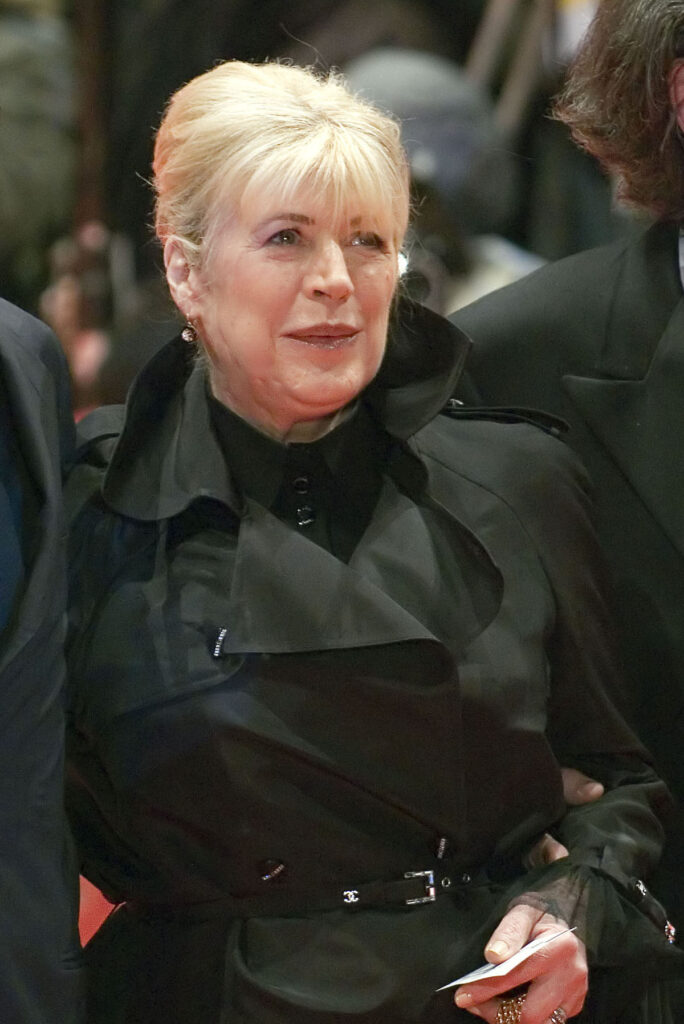
8. **Marianne Faithfull (Pop and rock singer-songwriter and actress)**The rock and pop world bid farewell to Marianne Faithfull, the indelible singer-songwriter and actress, who passed away at 78 on January 30, 2025, in London, England. Faithfull carved out a legendary career defined by her distinctive voice, uncompromising artistic vision, and a life lived on the front lines of music and culture. Her influence extended beyond her own recordings, permeating the very fabric of rock’s narrative and embodying the defiant spirit of its evolution.
Faithfull’s journey through music saw her evolve from a quintessential figure of the 1960s British Invasion, known for her ethereal beauty and folk-pop sensibilities, to a resilient, critically acclaimed artist whose later work carried a profound emotional weight and raw, gravelly timbre. Her album *Broken English* from 1979 marked a stunning resurgence, a powerful statement of survival and artistic reinvention that cemented her status as a serious and formidable musician. This ability to infuse her songs with unflinching honesty and a world-weary wisdom resonated deeply with audiences, making her a voice of enduring authenticity.
Her discography is a testament to an artist who consistently reinvented herself while staying true to her core artistic identity, fearlessly tackling a wide range of genres from rock and blues to cabaret and spoken word. Each album, particularly in her later career, felt like a chapter of a deeply personal memoir, delivered with a voice that had witnessed and survived much. This profound connection between her life and her art made her work uniquely compelling and relatable.
Throughout her career, Marianne Faithfull navigated the complexities of fame, addiction, and personal struggle with remarkable grace and artistic integrity, always emerging with her creative spirit intact. Her contributions as a singer and songwriter showcased a powerful lyrical sensibility, often exploring themes of love, loss, and disillusionment with an unflinching gaze that was both vulnerable and defiant. Her music remains a vital part of rock history, a powerful narrative delivered by a singular, iconic voice that will continue to inspire and resonate for generations.
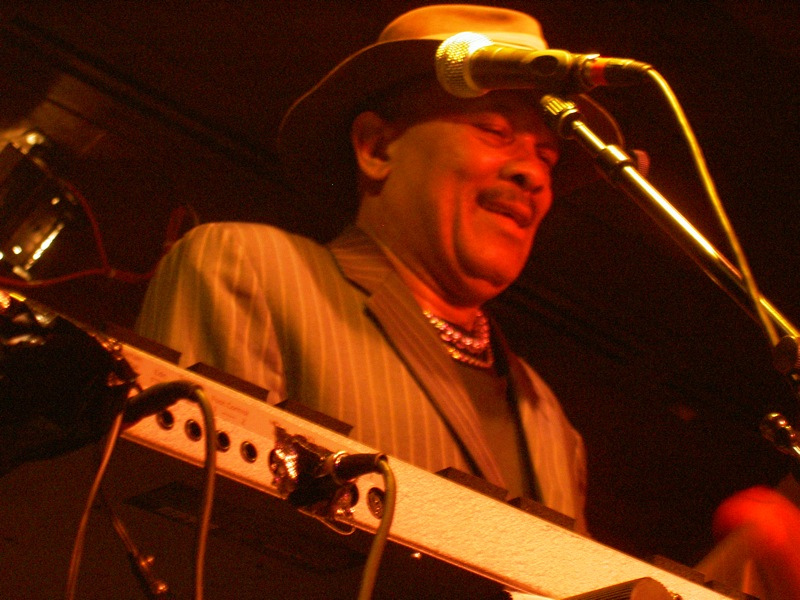
9. **Roy Ayers (Jazz-funk vibraphonist, record producer, and composer)**A true pioneer of jazz-funk, Roy Ayers, the celebrated vibraphonist, record producer, and composer, departed at 84 on March 4, 2025, in New York City after a long illness. Ayers was a kaleidoscopic force in music, whose innovative approach to the vibraphone and his seamless blend of jazz, funk, and soul created a sound that was both utterly unique and universally influential. His musical explorations opened new pathways for countless artists, forging a legacy that remains vibrant across genres.
Ayers’s signature sound, characterized by the warm, shimmering tones of his vibraphone, became a hallmark of the burgeoning jazz-funk movement of the 1970s. He elevated the instrument from its traditional jazz confines into the realm of popular music, making it cool and contemporary. He transcended genre boundaries with effortless grace, bringing the sophistication of jazz improvisation into the infectious grooves of funk and the emotional depth of soul, creating a sonic blueprint that was ahead of its time.
This fusion not only yielded a string of beloved albums and hit singles like “Everybody Loves the Sunshine” and “Running Away,” but also laid significant groundwork for subsequent genres like hip-hop and R&B, where his extensive catalog remains one of the most sampled in history. Ayers was not just a performer; he was a sound architect, building bridges between disparate musical worlds and proving the limitless possibilities of creative collaboration. His compositions often evoked a sense of laid-back optimism mixed with profound musicality, establishing a distinctive mood that was instantly recognizable.
As a prolific record producer and composer, Ayers’s creative output was immense. He not only crafted his own successful career but also contributed to and shaped the sound of numerous other artists, always with an ear for innovation and groove. His keen ear for arrangement and his rhythmic ingenuity were evident in every project he touched, solidifying his reputation as a visionary who understood the heartbeat of popular music. Roy Ayers’s vibrant legacy lives on through his extensive catalog, which continues to inspire and move generations with its timeless appeal, innovative spirit, and undeniable funk.
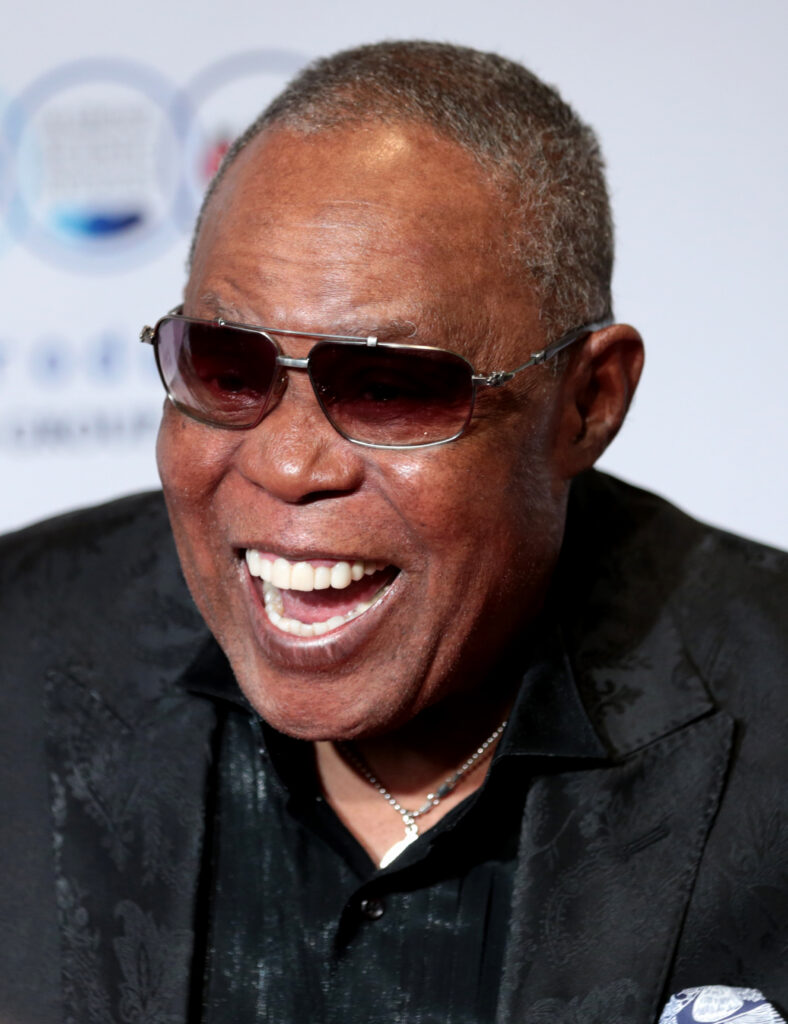
10. **Sam Moore (Sam & Dave)**The world of soul music paused to mourn the passing of Sam Moore, half of the legendary duo Sam & Dave, who died at 89 on January 10, 2025, in Coral Gables, Florida, due to complications from surgery. Moore’s electrifying performances and powerful, gritty vocals were integral to defining the sound of Southern soul, making Sam & Dave one of the most dynamic and influential duos in music history. His presence was truly monumental, radiating an energy that was both profoundly spiritual and undeniably secular.
Sam & Dave were synonymous with raw energy and infectious grooves, delivering a string of hits that became anthems of their era, including “Soul Man,” “Hold On, I’m Comin’,” and “Wrap It Up.” Moore’s vocal prowess, characterized by his impassioned delivery and an almost primal ability to convey profound emotion, was perfectly complemented by Dave Prater’s dynamic harmonies and stage presence. Together, they created a distinctive call-and-response style that was both deeply rooted in gospel traditions and utterly revolutionary in popular music, translating the fervor of the church house to the dance floor.
Their collaborations with the legendary Stax Records house band and the prodigious songwriting team of Isaac Hayes and David Porter produced some of soul’s most enduring classics, defining an entire era of American music. Moore’s voice was a powerful instrument, capable of both tender vulnerability and exhilarating power, bringing an undeniable authenticity to every performance. His command of a song’s narrative, coupled with his peerless showmanship, ensured that every Sam & Dave performance was an unforgettable experience.
Moore continued to champion the legacy of soul music throughout his later life, performing with an enduring passion and serving as a vital link to the genre’s golden age. His commitment to the authenticity and power of soul music never wavered. His legacy as a foundational figure in soul music, whose contributions continue to reverberate through countless artists influenced by his style, is immense and will forever be cherished as a cornerstone of American popular music.

11. **Roberta Flack (Singer and songwriter)**The music world felt a profound void with the passing of Roberta Flack, the distinguished singer and songwriter, who died at 88 on February 24, 2025, in New York City, after a battle with amyotrophic lateral sclerosis. Flack possessed one of the most instantly recognizable and captivating voices in contemporary music, renowned for its clarity, warmth, and an unparalleled ability to convey deep emotion with exquisite control and nuanced phrasing. She was a true artisan of song, a meticulous craftswoman who elevated popular music to an art form.
Flack’s career was marked by a series of critically acclaimed albums and iconic singles that blended soul, folk, and jazz with exquisite taste and artistry. Hits like “The First Time Ever I Saw Your Face,” “Killing Me Softly with His Song,” and “Feel Like Makin’ Love” became cultural touchstones, showcasing her unique ability to transform diverse material into deeply personal statements. Her music was often characterized by its intimate atmosphere and her meticulous attention to lyrical and melodic detail, creating a profound connection with her audience.
She had a unique gift for taking a song and transforming it into a personal, resonant experience for listeners, an almost meditative quality that invited introspection. Her precise vocal delivery, combined with her sophisticated piano arrangements, created a signature sound that was both understated and immensely powerful. Flack’s work transcended passing trends, focusing instead on timeless melodies and universal themes of love, longing, and human connection, cementing her status as a beloved and revered vocalist whose artistic integrity was paramount.
Her ability to interpret a song with such depth and feeling made her an unparalleled storyteller, drawing audiences into the emotional core of her narratives with effortless grace. Roberta Flack’s influential discography stands as a testament to her enduring artistry, a collection of timeless recordings that continue to touch hearts and inspire new generations of singers and songwriters. Her legacy is one of exquisite vocal beauty, profound musicality, and an unwavering commitment to her craft, leaving an indelible mark on the landscape of popular music.

12. **Roy Thomas Baker (Record producer, songwriter, and arranger)**Beyond the performers, the architects of sound often leave an equally profound mark, and Roy Thomas Baker, the celebrated record producer, songwriter, and arranger, was one such titan. Baker passed away at 78 on April 12, 2025, in Lake Havasu City, Arizona, leaving behind a monumental legacy etched into the grooves of some of rock’s most iconic albums. His touch was synonymous with grand, meticulously crafted soundscapes that redefined what was possible in the studio.
Baker was known for his innovative and often extravagant production techniques, which played a crucial role in defining the sonic character of bands across multiple genres, from the theatricality of Queen to the raw power of The Cars. His genius lay in his ability to capture raw artistic energy while simultaneously building rich, layered sonic environments that became instantly recognizable. He was not just recording music; he was crafting auditory experiences that pushed boundaries and set new standards for studio production, creating sounds that were both massive and intricately detailed.
As both a producer and an arranger, Baker possessed a unique vision for how a song could evolve from its raw form into a masterpiece. He had an innate understanding of dynamics, texture, and how to maximize the emotional impact of a track, often employing complex vocal harmonies and multi-tracked instrumentation to achieve his signature sound. His meticulous approach and willingness to experiment helped shape the distinct identities of many legendary artists, becoming a trusted collaborator who could translate their artistic ambitions into tangible sonic realities.
His work influenced countless musicians and producers, proving that the studio itself is an instrument, and its master can shape entire movements. Roy Thomas Baker’s contributions are a powerful reminder of the unsung heroes whose behind-the-scenes artistry is indispensable to the “sonic revolution,” ensuring that the records he touched possessed a timeless quality that continues to captivate listeners decades later. His legacy is one of sonic grandeur, a testament to the transformative power of masterful record production.
The year 2025 has truly been a watershed moment, demanding that we pause and acknowledge the monumental contributions of these extraordinary musicians. From the visceral power of rock’s pioneers to the sophisticated depths of jazz-funk and the enduring heart of soul, each artist discussed here left an indelible imprint on the global music landscape. While their physical presence may be gone, the echoes of their sonic revolutions will continue to resonate, inspiring new generations and reminding us that true artistry transcends time, living on forever in the melodies and rhythms they so masterfully brought into the world. Their legacies are not merely memories; they are vibrant, living testaments to the power of music to move, provoke, and eternally transform.




